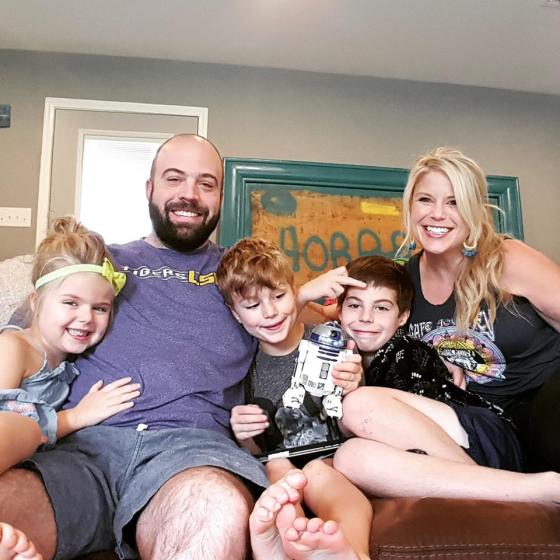Parent-teacher conferences are right around the corner, and to be honest, I’m not sure what I’m going to discover.
Are my kids measuring up to their potential (whatever that is)? Is my 5th-grader showing his work on math tests? Is my kindergartener learning how to hold her scissors properly? Does my 2nd-grader assert himself?
But most importantly: Do my kids stand up for others?
I was picked on a lot as a kid. Almost everyone is, at one point or another, which is the main reason why I’d never want to relive my childhood if given the chance. But this is why issues of bullying are never far from my mind.
Looking back, it wasn’t so much the bullies that hurt my feelings the most — it was the kids who stood by silently, complicit in the act. The kids who saw what was happening and could have stepped up and said something — anything — but chose not to because my pain wasn’t worth risking their own.
Of course, now that I’m older, I understand why. I’ve certainly been silent and complicit before myself. It takes courage to speak up, especially when doing so might jeopardize your social status. Staying quiet means staying on the bully’s good side; being loud will only draw attention. There’s always a feeling of relief when you aren’t the one being called names in the lunch line, and when it isn’t your backpack being thrown into a lake.
The thing is, there will always be bullies. There aren’t always allies.
Being an ally requires more than just empathy, and I want my kids to know this. It means being willing to be brave, to act with and for other people simply because it’s the right thing to do. In large and small ways, I try and instill in my kids the value of fighting for justice. I just hope these lessons stick.
In our house, there is a combo of neurotypical and neuroatypical children. Our oldest has ADHD, anxiety, and high-functioning autism. Our younger two are not officially diagnosed with anything, but each have their unique sets of challenges and eccentricities. My husband is a rumpled, absent-minded mathematical mastermind, and I’m a newly-sober, neurotic writer.

This is us. And yes, my oldest is definitely giving you the bird.
Basically, our entire family is quirky, and none of us pretend to be perfect. As a result, our day-to-day existence revolves around kindness, patience, tolerance, forgiveness, and the ability to say “I’m sorry” whenever it’s warranted.
My kids are growing up intimately aware of the fact that there is always a lot more to people than what we can see on the outside. They know that sometimes, what people need most is a big hug or a super comfy bed to take a nap in, but also, sometimes people don’t have access to either of those things, and it’s our job to understand that. So we talk about the fact that everyone has challenges.
Sometimes we can’t see them. Sometimes they’re not pretty to look at. Sometimes they’re even uncomfortable to be around. The important thing is that they are learning to be allies, whether or not they ever call it by that name.
Of course, no parent wants their child to be the bully — or worse, be bullied themselves. But I want to take it a step further and give them the confidence and the tools to step up and stand up for other kids who might not have the same.
After school, I ask my kids if they noticed anyone who seemed lonely or sad that day. When one of them mentions social drama, I ask questions. What did you do when you saw Allie getting picked on? How did that make you feel? Then I use real-life situations to point out ways they can help their peers.
At the end of the day, I try not to put pressure on my kids to solve the world’s problems, because that would be an impossible expectation; but it’s important for them to understand that part of being a good human is helping the other humans within your orbit. And because I want to raise the kind of people who aren’t afraid to speak their mind, I’ve learned that I have to be willing, as a mother, to let them speak their minds. Frankly, it’s exhausting, but it’s a price I’m willing to pay.
It is my highest hope as a parent that my kids will be gutsy enough to say, “Nope, that’s not okay,” when they spot an injustice. I want them to be friendly enough to say “Hi, new kid, you can sit here,” or “Stop picking on her!”
I want them to understand that saying something can change the course of a person’s day, or even their entire life.
I can’t control whether or not my kids get teased or picked on at school, and the reality of that is painful. But my job as a parent isn’t just to make sure my children know the difference between right and wrong; it’s to make sure they’re gutsy enough to actually open their mouths, speak up, and refuse to be a part of the problem.
If I can pull that off, then my job here is done.
(If you liked this post, then you should follow me on Facebook, Instagram, and Twitter!)
